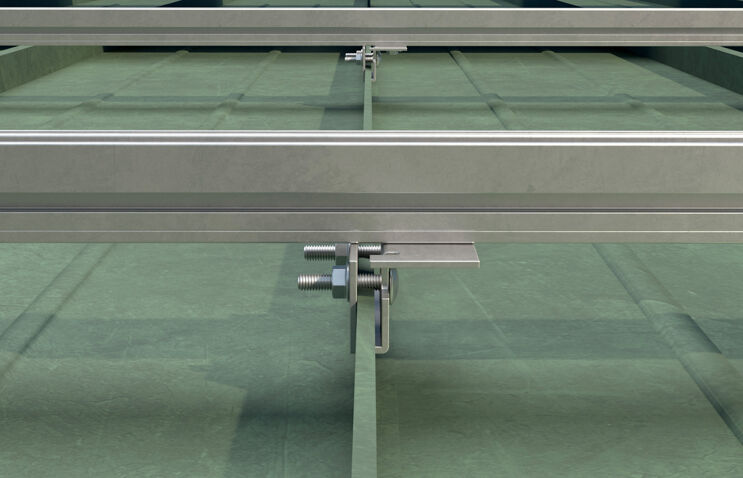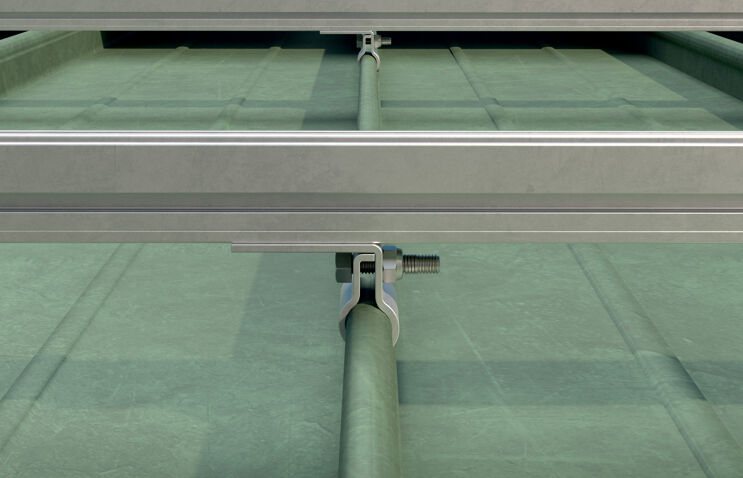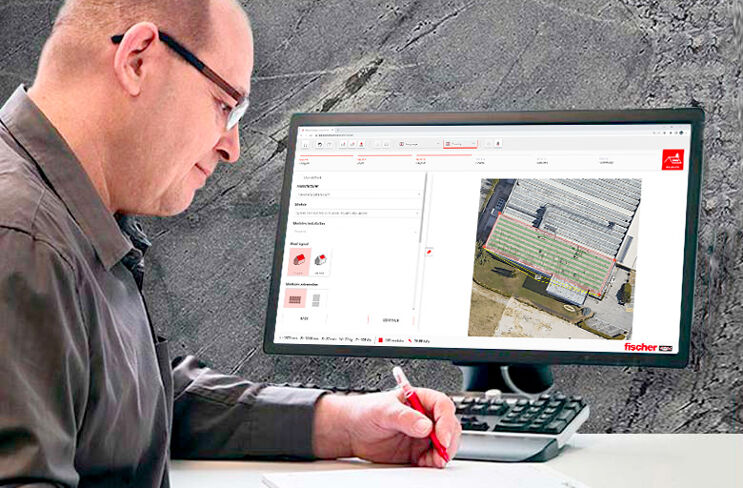
- Products
- Service
- Expertise
- References
- fischer group
- Contact
- Home
- Expertise
- Solar systems
- Pitched roof with standing seam covering
In pitched roofs with standing seams covering, the metal sheets are joined together through folds at the edges, ensuring excellent sealing, strength, and long-term durability.
fischer has developed a comprehensive system that allows for the quick and secure installation and mounting of solar panels on pitched roof standing seams. The aluminum clamps are designed to be used on both Kalzip and similar types.
Explore all the solar mounting systems by fischer.
This system involves the use of rails and clamps that guarantee the fastening of the panels both in portrait and landscape orientation.

Thanks to clamps fixed directly on the Kalzip standing seam, the rails can be interlocked in a simple way.
Discover the products

SOLARPANEL-FIX is an Online module of the FiXperience Suite for the design of mounting systems for photovoltaic panels: it supports professionals in the design of the photovoltaic substructure through a clear and logical flow.
The software allows to automatically calculate the actions of snow and wind loads through the geolocation of the construction site, according to the requirements of the European Standard EN 1991 (Eurocode 1). In addition, it allows to download the bill of materials to create the substructure, the installation plan and a technical report. The latter outlines the structural checks of the system parts, according to the European Standards EN 1993 (Eurocode 3), EN 1999 (Eurocode 9) and according to fischer specifications.
